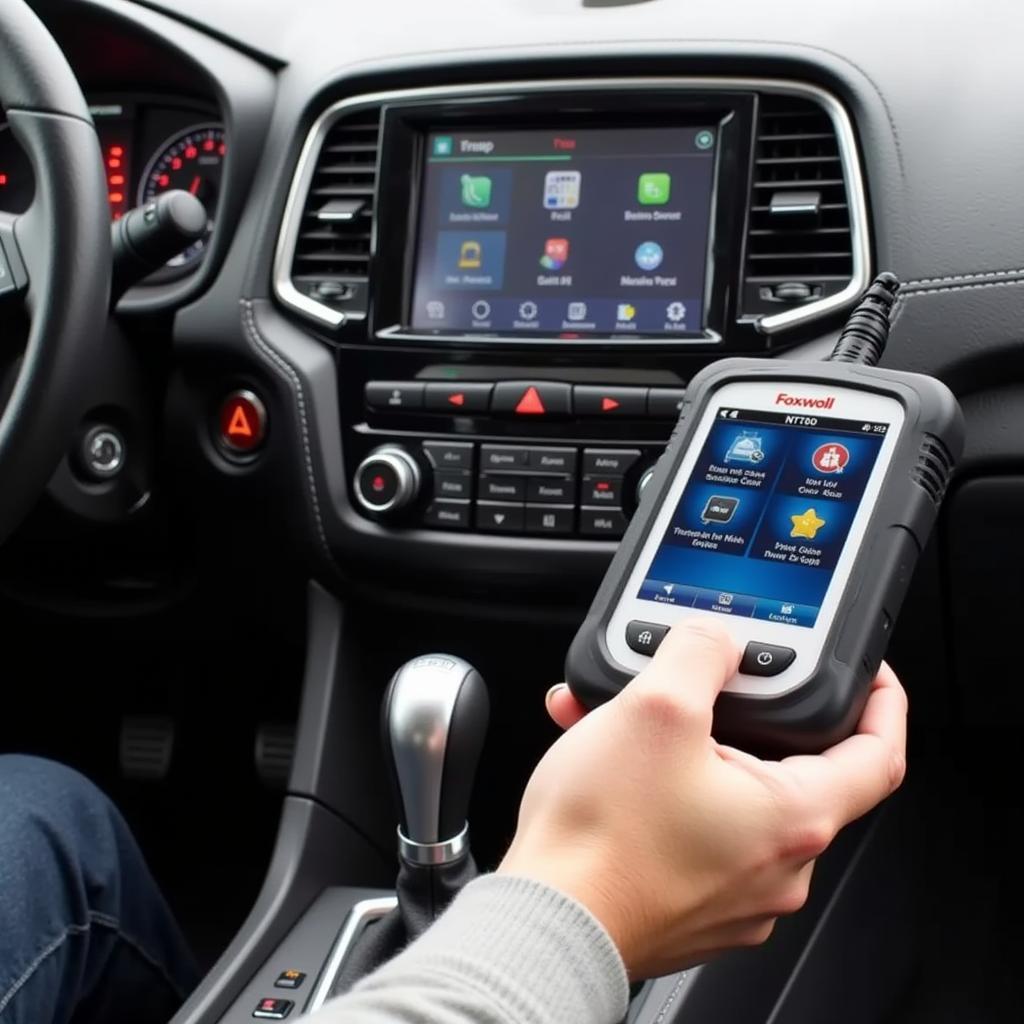Chelsea Foxwell San Diego 2018 may not be a recognizable term in the automotive world, but the core principles of diagnostics and repair remain constant. Whether you’re a car owner facing a perplexing issue, a shop owner looking to improve diagnostic efficiency, or a technician striving to enhance your skills, this article will provide valuable insights into tackling modern vehicle problems.
Understanding the Evolving Landscape of Automotive Repair
The automotive industry has transformed significantly, even since 2018. Vehicles are increasingly complex, relying heavily on software and intricate electronic systems. This shift necessitates a deeper understanding of both the mechanical and electronic components for effective diagnostics and repair. No longer is it sufficient to simply know how an engine works mechanically; you must also understand how the various sensors, actuators, and control modules interact.
Diagnostics in the Digital Age: Beyond the Chelsea Foxwell San Diego 2018 Era
Diagnostic tools have evolved too. While a specific “Chelsea Foxwell San Diego 2018” tool might not exist, numerous advanced scan tools offer capabilities beyond what was available just a few years ago. These tools provide access to vital data, allowing technicians to pinpoint issues with greater precision and speed. Understanding how to leverage these tools effectively is critical for successful repair.
Common Automotive Issues and Solutions
Several common issues plague modern vehicles, ranging from simple sensor malfunctions to complex software glitches. Here are some common problems and how to approach diagnosing and fixing them:
- Check Engine Light: This ubiquitous warning can signify anything from a loose gas cap to a failing catalytic converter. Proper diagnosis using a scan tool is essential.
- Intermittent Electrical Problems: These can be particularly challenging to diagnose. Careful observation, combined with data logging and analysis, is often necessary to identify the root cause.
- Transmission Issues: Modern transmissions are incredibly complex. Specialized diagnostic procedures and tools are crucial for accurate diagnosis and repair.
Utilizing Scan Tools for Efficient Diagnostics
A quality scan tool is an indispensable tool for any automotive professional. These tools provide access to the vehicle’s onboard diagnostic system, allowing you to retrieve fault codes, monitor live data, and perform various tests.
- Retrieve Fault Codes: The first step in diagnosing any issue is to retrieve the fault codes stored in the vehicle’s computer. These codes provide valuable clues about the nature of the problem.
- Analyze Live Data: Monitoring live data from various sensors allows you to observe the vehicle’s systems in real-time. This can help identify intermittent problems or pinpoint the source of a malfunction.
- Perform Tests: Many scan tools allow you to perform specific tests, such as actuator tests or system checks. These tests can help confirm a diagnosis or isolate a faulty component.
“In today’s automotive landscape, a solid understanding of electronics and software is just as important as mechanical knowledge,” says John Miller, a seasoned automotive diagnostician with over 20 years of experience. “A good scan tool and the ability to interpret data are essential for success.”
Staying Ahead of the Curve in Automotive Technology
The automotive industry is constantly evolving. Staying up-to-date with the latest technologies and diagnostic techniques is essential for remaining competitive. Continuous learning, attending training courses, and networking with other professionals are all valuable ways to stay ahead of the curve.
“Investing in quality training and diagnostic equipment is the best way to ensure long-term success in this field,” adds Sarah Chen, an automotive electronics expert.
Conclusion
While the specific term “Chelsea Foxwell San Diego 2018” may not be directly relevant to automotive diagnostics, the principles of effective troubleshooting and repair remain crucial. By embracing the latest technologies, investing in ongoing training, and utilizing the right tools, you can effectively diagnose and repair even the most complex automotive issues. Connect with ScanToolUS at +1 (641) 206-8880 or visit our office at 1615 S Laramie Ave, Cicero, IL 60804, USA for expert assistance.


